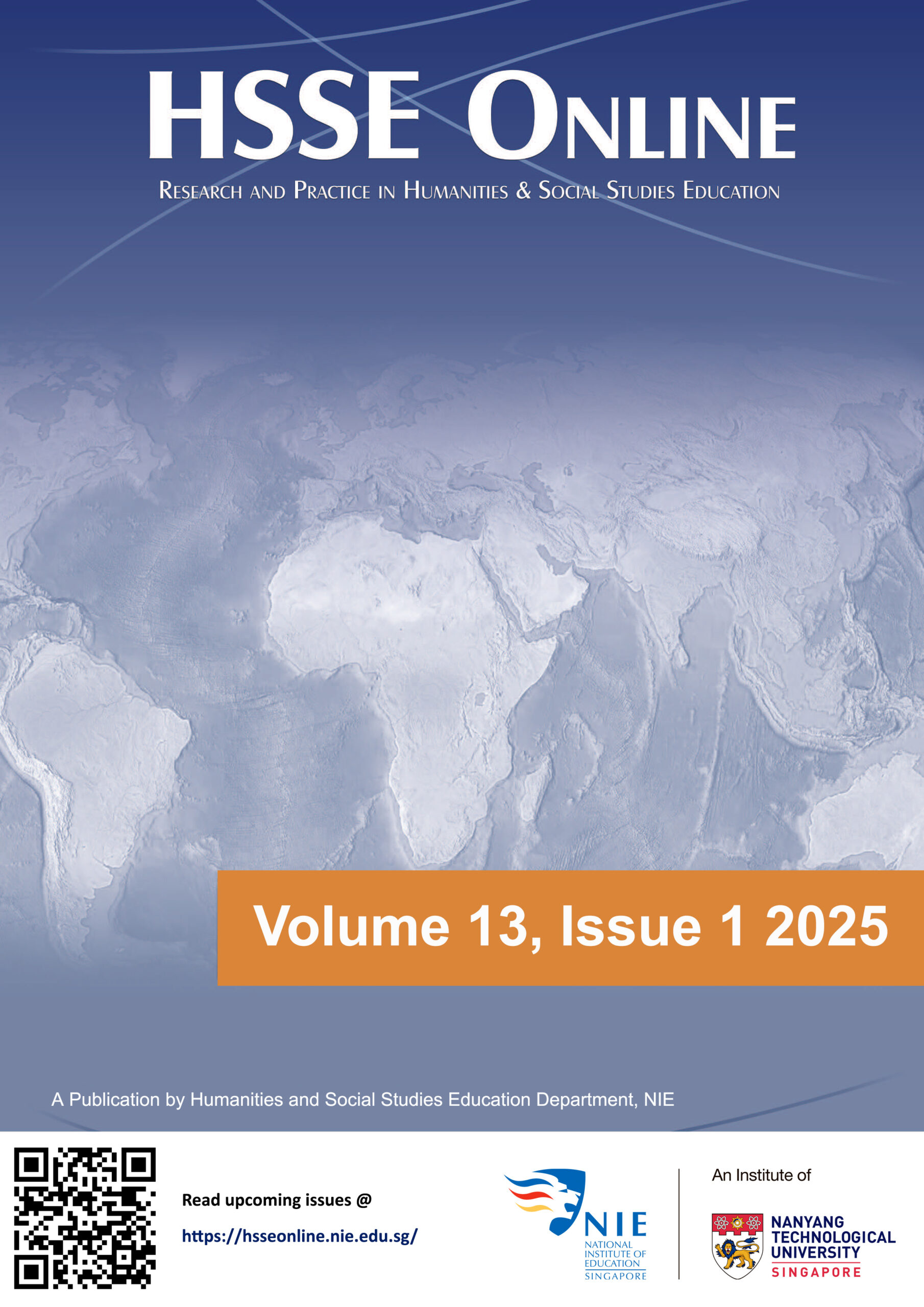This volume explores, in various ways, the ongoing relationship between the discipline of history and the school curriculum. While school history is not intended to fully replicate the academic discipline—and students are not expected to become professional historians—the enduring question of “what should school history look like?” continues to drive reflection and discussion among history educators, experienced practitioners, and pre-service teachers.
In this issue, we bring together contributions that address two related themes: (a) how history learning can be made more substantive and enduring, and (b) how curriculum goals can be actualised effectively in the history classroom. What connects these discussions is a shared commitment to a vision of history education that not only prepares students to do well in school but also to develop habits of mind to think critically about the past, reason with evidence, and engage thoughtfully with the world beyond the classroom.
Taken as a whole, the papers in this volume reflect the belief that school history must not only cultivate disciplinary thinking but also be positioned to respond to a rapidly changing social and technological landscape. Across the diverse perspectives and pedagogical approaches proposed by the authors, a common thread emerged: that history education must empower students with the knowledge, skills, and dispositions that can enable them to thrive and remain relevant in an ever-changing, complex, and information-rich future.
Responding to the first theme, Suhaimi Afandi and Edward Tan examine how historical knowledge can be made more “powerful” for students, enabling those who possess it to act within and beyond the discipline. Drawing from conversations among colleagues at NIE and UCL IoE, they explore an approach to lesson design grounded in the idea of ‘powerful knowledge’, where students develop deep historical understanding through conceptually rich, socially relevant learning experiences that extend beyond formal assessment.
Mathew Lim’s paper extends this conversation by considering how artificial intelligence (AI) is reshaping the information landscape that students encounter. His work highlights how history education can prepare learners to navigate AI-influenced realities, while also showing how AI might enhance historical inquiry and students’ engagement with history and the past.
In the following paper, Candice Yvette Seet and her team of teacher-collaborators shift the focus to the power of conceptual teaching in the history classroom. Their paper positions concepts as a vital organising framework in curriculum and instruction, promoting student agency and supporting the development of critical and adaptive thinking—key capacities for learners facing the challenges of an uncertain and fast-changing future.
Turning to classroom experience, Edward Tan and Suhaimi Afandi revisit the theme of lesson design by advocating for the role of ‘play’ in promoting engagement and deep learning. Drawing on their interactions with history student teachers at NIE, they suggest using lesson planning activities (through the Playwheel) to foster playful dispositions amongst pre-service teachers and allow them to reimagine ‘playful learning’ as a legitimate, engaging, and effective pedagogical approach.
The next paper by Gavin Swee further examines how current attitudes towards history learning can be reframed, by addressing the teaching of historical writing, an often underexplored area. He proposes a process-oriented approach that conscientiously supports students in developing historical argumentation and reasoning skills, thereby strengthening their capacity to cultivate disciplinary thinking and writing aligned with historical inquiry.
The second half of the volume turns to technology-mediated lesson designs that can help develop students’ thinking and reasoning in history. Student teachers – Kenneth Kway, Warren Ong, and Andrew Tan – discuss how platforms like Canva open up collaborative learning opportunities, exposing learners to new learning experiences and enabling them to co-construct understanding in dynamic ways. Veteran educators Ezal Sani, Lloyd Yeo, and Samuel Wee demonstrate this idea further by showing how virtual field trips can simulate rich historical experiences, allowing students to practise inquiry, develop historical perspectives, and connect more deeply with the past, all within classroom settings.
Finally, Jason Seng discusses how inquiry-based learning in history can benefit from insights in recent work undertaken in the science of learning. By incorporating frameworks such as Readiness, Coherent Construction and Consolidation (RCC), and the Information Processing and SEEKING System (IPSS), he shows how students’ dispositions toward reading sources can be developed more intentionally and systematically.
Also included in this issue is Kevin Blackburn’s review of Teaching History: A Practical Guide for Secondary Teachers by Jonathon Dallimore. Blackburn found Dallimore’s book to be an invaluable resource that combines practical teaching strategies with clear explanations of key concepts in historical understanding. It emphasises the importance of historical thinking skills for academic growth, civic engagement, and the ability to evaluate narratives in public life critically. The book successfully integrates theory and practice, and encourages teachers to remain “bifocal” by balancing historical scholarship with effective instruction.
Collectively, these papers call for a reimagining of history education by emphasising practical and thoughtful teaching, supported by pedagogical refinements, to develop robust historical understanding while ensuring that lessons remain responsive and relevant to the demands of today’s world. Central to this endeavour is a push for more engaging, future-focused approaches that make history meaningful for today’s learners. We hope this volume offers useful ideas for the classroom and sparks ongoing conversation, reflection, and collaboration among history educators in Singapore.


